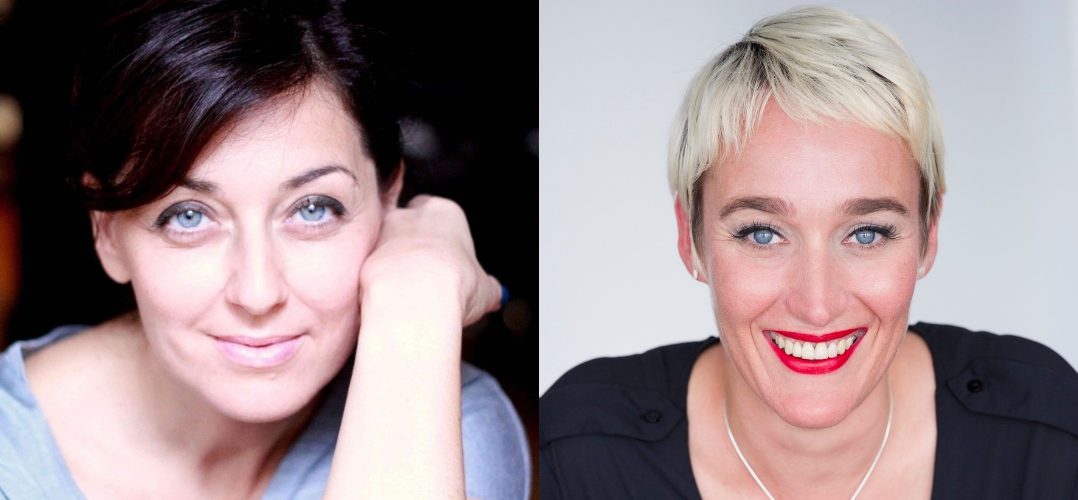MIPBlog: This will be the third consecutive year since 2016 that MIPCOM focuses on diversity in entertainment. What progress do you feel has been made since then? What progress remains to be made?
Florence Sandis & Sarah Hemar: The main progress we see is that the subject is now addressed and people are willing to talk about and act on it. This said there is a lot more to be done. Diversity is a broad word. And whether we’re talking about race, LBGT or gender, there’s room for improvement. Mediaclub’Elles is engaged on gender diversity in the media industry in France. Just 1 year old, it already counts 700 professionals in the French media industry. This shows the need and appetite for the subject. As far as this industry is concerned, there is still room for improvement in terms of gender equality on and behind the screen, also in terms of topics covered and stereotypes. In the past year, we have seen some changes in terms of themes covered onscreen: domestic violence or endometriosis have recently been included in programming by as big a channel as TF1.
Yet the big change remains to be made: sharing positions of power. When we see diverse and inclusive boards, CEOs, Assemblies or Supreme courts, we’ll have made it 🙂
> #metoo has been the biggest movement in terms of diversity this past year. How has it impacted the TV industry in particular?
#metoo has shed light on conversation that were already happening behind closed doors. It has exposed a structure of power concentrated in the hands of a powerful elite, mostly made of white men. This locker room/bro culture kept women in a position of dependency and perpetuated a dynamic detrimental to women. This is true in every sector, including TV. Exposing this is first a relief to all women and people who have suffered under this system.
Being able to talk about it opens a whole new dimension where women can stop refraining their ambition to avoid being confronted by situations like this. We all know friends who have turned down positions to avoid working with one person who behaves inappropriately. Numerous women’s careers have been impeded, if not broken, because of this power structure.
Secondly, the feeling the support of the community is in itself empowering. And concrete change can only follow when people feel empowered. This gives us great hope. The opportunity we have in the cinema and TV industry is that of exposure. Therefore we – as an industry – have a responsibility to be vocal, and to get the message across for all women. After #metoo, this is what the #timesup movement is about.
> At MIPCOM 2017, Sir Lenny Henry suggested tax breaks for diverse programming were a good way forward. Do you agree?
We totally agree with this. We’ve been waiting for change for years and we can agree it’s not happening spontaneously. Although we’d love to see the people in power disrupting the state of the industry just because it feels right and that’s what a majority want, a financial incentive can only help. France’s CNC announced last month they will increase financial support to gender equal team in the cinema industry, the projet is labelled ‘Objective 50/50 in 2020’. We hope they will soon expand this to the TV industry, which is super dynamic and rich in talented women in every position. This will also open a virtuous circle with more women entering our industry in positions they don’t yet consider open to them, like the technical ones. Women need role models to identify with.
> Are all sectors of diversity progressing at a similar rate, or are some doing less well?
Mediaclub’ELLES is engaged in gender diversity in the French media industry, therefore we can’t really speak about all sectors of diversity. In our area of gender diversity there are days when we feel the industry is getting it and improving. Then the day after we hear about a decision that makes me feel we are just like Sysiphus, pushing his rock up the hill and falling back again! What keeps us going is the team behind MCE, the women we meet in our events, in other word the sorority, which is a powerful drive. And we’re all making changes around ourselves. We believe all these changes will lead to bigger ones in the end. This said we have the feeling there are still a lot to be done in the body diversity area, in ageism and in the representation of transgender people.
> How diverse do you hope TV will be by 2020? What would it take to get there?
We hope the TV sector, behind and on screen, will be a diverse as our world is: 50/50 women/men (or 52/48 exactly), all colors, all sexualities. Diversity is a blessing. All studies show it creates more efficient companies and give more chances to everybody. We’d be crazy not to go there as a society. How? First, we need to do this all together, with much more men involved. In the US, men have started to openly support women in their engagement. French men are much more discrete, tosay the least. Bluntly put, men have the power in their hands, including the power to change. It’ll also take a lot of courage to speak up and take action, so the more we are, the stronger we’ll be! And as far as we are concerned it will also require keeping our friends close, a drop of anger, some hugs and a lot of humour 🙂
Sarah Hemar & Florence Sandis are members of the board of MediaClub’Elles, who organise a mentoring session called “Getting to the Top: Insight from – and for – Women in Media” at MIPCOM this Wednesday morning. Sandis is also a journalist, author and TV director; Hemar is Executive Director at TV France International.




